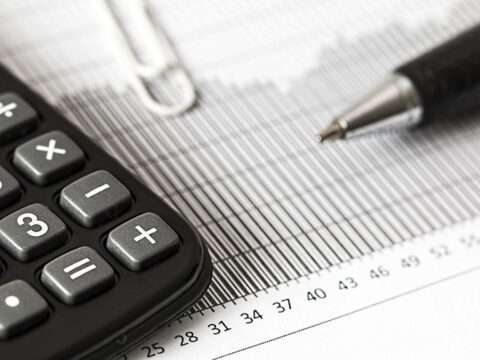Find out what a GST number is, why your business might need one, and how to register for it in Canada.
You’ve probably heard the term “GST number” in the past, but what exactly is it, and when do you need one? A GST number is your business’s unique identifier for collecting and remitting the Goods and Services Tax (or the combined GST/HST, depending on your province). It’s part of your CRA Business Number, and it becomes essential once your business makes $30,000 or more in taxable sales in a single calendar quarter or over four consecutive quarters.
Even if you’re just starting out, registering early can give your business credibility and allow you to claim input tax credits. Getting a GST number is pretty straightforward, and you can apply online through the CRA.
So in this article, we’ll take a look at GST Numbers and how to get one if you’re just starting out. Let’s go!
What Is a GST Number and Why Is It Important?
A GST number is a unique identifier assigned to businesses by the Canada Revenue Agency (CRA) when they register to collect the Goods and Services Tax (GST) or the combined GST/HST. It’s part of your overall Business Number (BN), and it tells the CRA you’re officially in the business of collecting taxes on your products or services.
It also allows you to claim input tax credits for the GST/HST you pay on business expenses. Without it, you could face penalties or missed tax benefits, so it’s definitely something worth understanding from day one.
Who Needs to Register for a GST Number in Canada?
Not every business in Canada needs a GST number right away, but if your taxable revenues hit $30,000 in a single calendar quarter or over four consecutive quarters, registration becomes mandatory. This threshold applies to most businesses, including freelancers, consultants, online stores, and service providers.
Even if you’re below that amount, you can still register voluntarily. Why would you? Because having a GST number allows you to claim input tax credits, basically, you can get back the GST/HST you paid on business expenses. If you deal with corporate clients or government contracts, having a GST number also boosts your credibility.
However, if you’re running a hobby or making only a few sales here and there, you probably don’t need to worry just yet but understand where your business fits so you can stay ahead of your tax responsibilities.
When Should You Apply for a GST Number?
As we’ve mentioned before, you should apply for a GST number as soon as your business earns, or is on track to earn, $30,000 or more in taxable sales over four consecutive quarters or within a single calendar quarter. This is the point when registration becomes mandatory. However, many small businesses choose to register voluntarily even before hitting that threshold. Why? Because it gives them the ability to claim input tax credits and adds legitimacy when working with suppliers or larger clients.
If you’re starting out and unsure whether you’ll reach $30,000 quickly, it’s still smart to keep an eye on your revenue and be ready to apply. Waiting too long could mean penalties or interest charges on uncollected GST/HST.
How to Register for a GST Number with the CRA
Registering for a GST number is easier than you might think. You can apply directly through the Canada Revenue Agency (CRA) website, by phone, or even by mail or fax if you prefer old-school methods.
Most business owners opt for the online option because it’s quick and straightforward. You’ll need your Business Number (BN) first, which you can get during the registration process if you don’t already have one.
Then, you simply add a GST/HST program account to your BN. During the process, you’ll be asked for basic business information like your legal name, business structure, estimated revenue, and start date.
Once you’re registered, the CRA will issue your GST number, which includes your BN followed by the suffix RT0001. After that, you’re officially allowed and required to start collecting GST/HST.
What Happens After You Get Your GST Number?
Once you receive your GST number, your business is officially registered to collect and remit GST/HST in Canada. That means you’re now responsible for charging the appropriate tax rate on your taxable sales, issuing proper invoices, and filing regular GST returns with the CRA. Depending on your revenue and reporting frequency, you may need to file monthly, quarterly, or annually.
You’ll also be able to claim input tax credits for the GST/HST paid on eligible business purchases. It’s important to stay organized and keep track of all sales, expenses, and taxes collected so your filings are accurate and on time.
A GST number is a unique tax identification number that the Canada Revenue Agency (CRA) gives to businesses when they register to collect the Goods and Services Tax (GST) or the combined GST/HST. It’s basically your business’s way of saying, “Hey, CRA, I’m collecting tax and doing things by the book.” This number is actually part of your overall Business Number (BN), and it helps the government keep track of how much tax you’re collecting and remitting.
So with that being said, it’s essential to obtain a GST number, so you’re ready to handle the tax side of your business professionally and responsibly.




